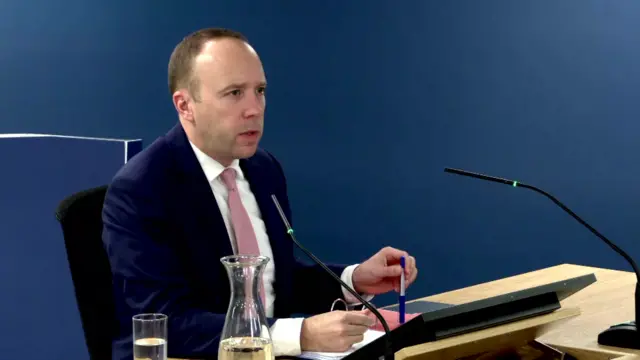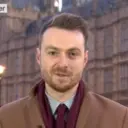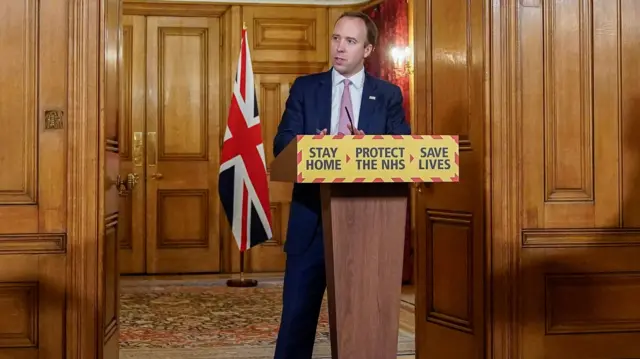That's it for today - more tomorrowpublished at 17:13 GMT 30 November 2023
Thank you for joining our coverage of Matt Hancock's questioning. The inquiry is done for the day but Hancock will be back on the stand again tomorrow at 10:00.
And if you missed any of it, you can catch up on everything that happened today here.
This page was edited by Nadia Ragozhina and Nathan Williams.
Your writers were Imogen James, Thomas Mackintosh, Becky Morton, Pia Harold and Tara Mewawalla.





